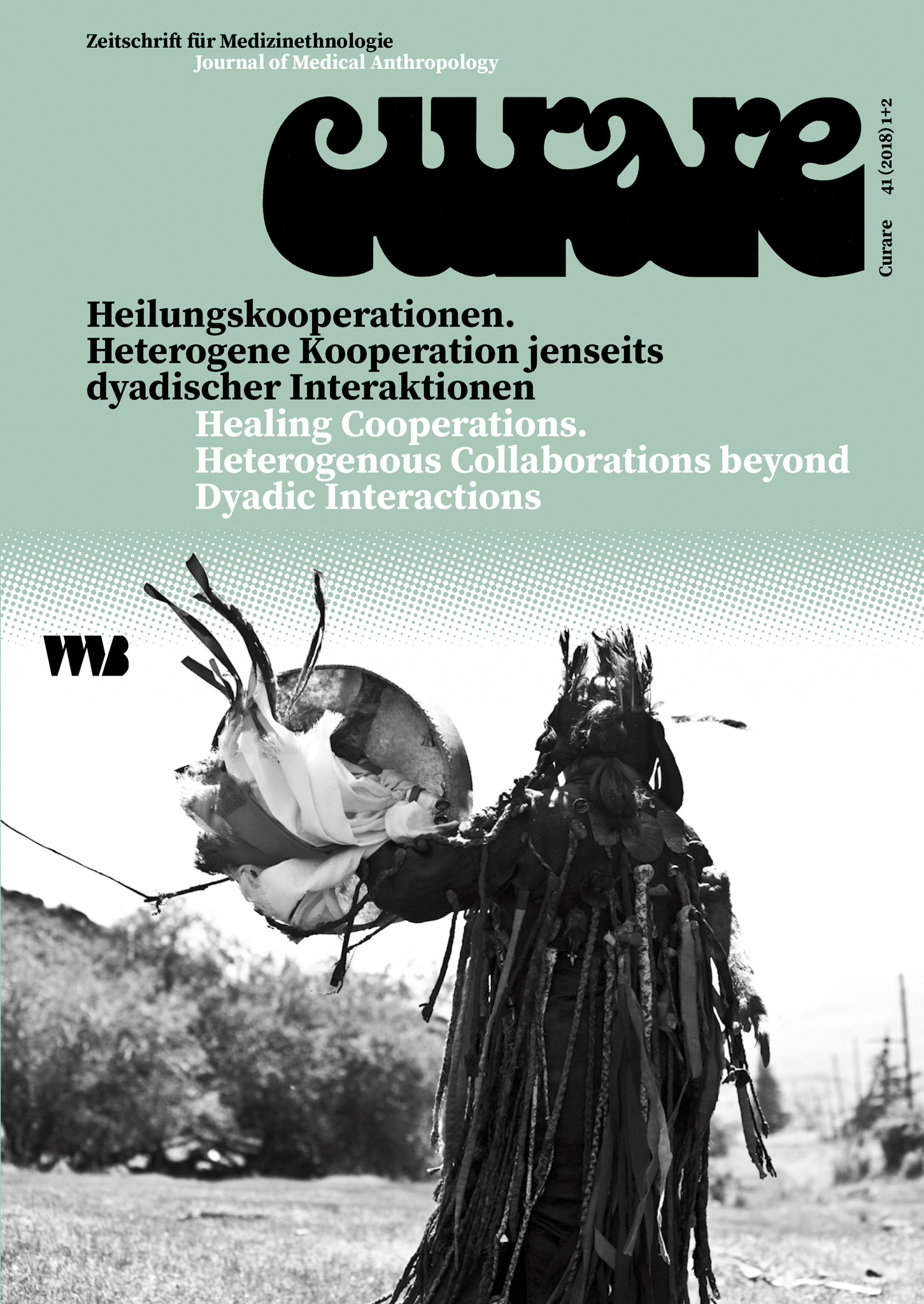The Ecology of Care in Cystic Fibrosis
Identification, Decision-Making and Learning in a Community Living and Working with a Rare Chronic Illness
DOI:
https://doi.org/10.60837/curare.v41i1+2.1704Schlagworte:
cysticfibrosis, chronic illness, communities of practice (CoP), distributed, decision making, knowledge, Germany, knowledge-practicesAbstract
This paper sets out todescribe how developing an identity as a member of acommunity organized around a rare chronic illness and becoming knowledgeably skilful in mastering the challenges of decision-making are part of the same process. We examine a community living with cystic fibrosis (CF) and their care-givers. CF is a rare inheritable disease with a chronic life-shortening course. Today, the growing complexity of care, with the resulting longevity for people with CF, governs the practicalities of day-to-day decision-making, highlighting an increasing need for interdisciplinary collaboration. Building on long-term ethnography as anthropologists and physicians, we use a practice theoretical approach to explore in a highly specialized university medical centre how patients and care-givers make decisions and negotiate meaning, and their position, within such a community of practice (CoP). Drawing on ideas from distributed cognition and knowledge-practices, we show that the CF CoP is characterized by three inter-related elements: First, by the development of a shared identity around the question how to manage and live with a rare chronic illness. Irony is used in establishing a position both outside the dominant mainstream of medicine and outside the dichotomies healthy/ill. Second, managing the condition requires collective learning in the domains of everyday life and clinical decision making, cutting across established status groups of patients and caregivers. Third, by taking experience and learning out of the individual’s head and making it a procedure to be enacted in similar moments, we argue that the embodied-knowledge of prior generations is not passed on but regenerated within the contexts of novices’ interactions within the social and material environment. Together, the three elements create a collectively embodied-memory culture allowing the CoP to regenerate itself and adapt within times of rapid change.
Downloads
Veröffentlicht
Ausgabe
Rubrik
Lizenz
Copyright (c) 2024 Curare. Zeitschrift für Medizinethnologie

Dieses Werk steht unter der Lizenz Creative Commons Namensnennung - Weitergabe unter gleichen Bedingungen 4.0 International.

